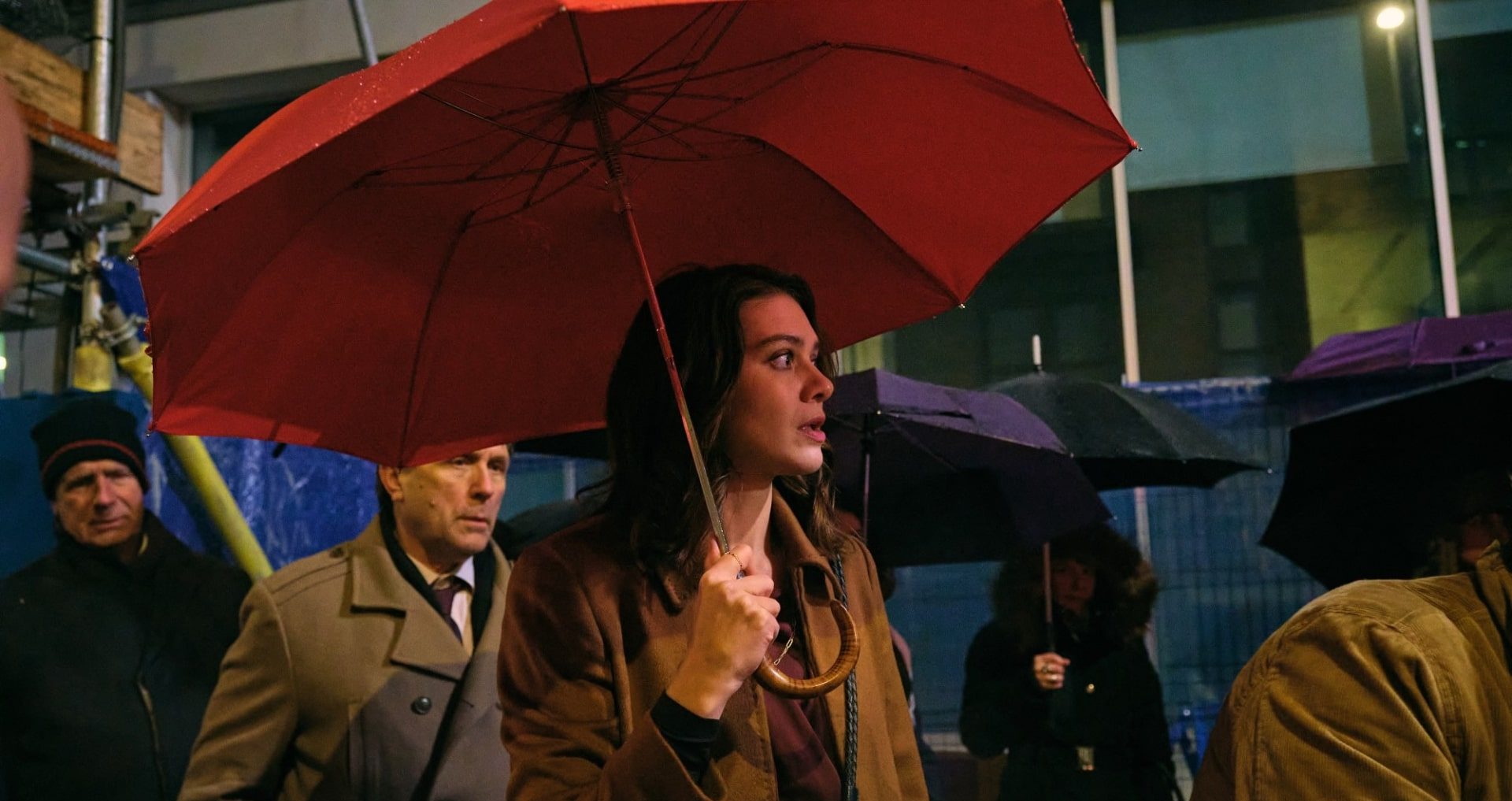The gripping British series ‘The Killing Kind’ plunges viewers into the tumultuous world of attorney Ingrid Lewis. In the show, released in 2023, Emma Appleton’s character, Ingrid Lewis, navigates the complexities of the legal system with razor-sharp wit and unwavering principles. Her triumph in defending the suave John Webster (Colin Morgan) against sexual harassment charges initially seems like a victory. However, as the series unfolds, the repercussions of her actions unravel, plunging her into a harrowing ordeal. With stellar performances by the cast that do justice to the tense environment of the plot, the show delves into themes of morality, justice, and the haunting consequences of one’s choices.
Available for streaming on Hulu, the legal thriller show’s driving elements inject themes and narratives that strike a chord of familiarity with viewers. The portrayal of a successful attorney caught in a legal crossfire while facing the moral dilemmas inherent in the profession is something very plausible and real. In today’s reality, encountering a manipulative male stalker who blurs the line between friend and foe is also disturbingly common. With such unsettling parallels to real-life scenarios, one is compelled to question whether ‘The Killing Kind’ is based on a true story or not.
Is The Killing Kind a Work of Fiction?
‘The Killing Kind’ is adapted from Jane Casey’s namesake novel, brought to life for television by Jonathan H. A. Stewart and Zara Hayes. With Casey’s extensive experience as a crime novelist, crafting ten novels for adults and three for teenagers, her keen insight into the genre shines through in the adaptation. Casey’s immersion in the world of crime is further enhanced by her marriage to a criminal barrister, ensuring the authenticity and accuracy of her storytelling. This dedication to realism has propelled her novels to international acclaim, earning both commercial success and critical praise.

Notably, Casey’s 2019 release, ‘Cruel Acts,’ was honored as Irish Crime Novel of the Year at the Irish Book Awards and secured a coveted spot on the Sunday Times bestseller list. Her departure from her established series to craft ‘The Killing Kind’ led her into uncharted territory, plunging deep into the grey world of legal proceedings. Drawing inspiration from her husband’s extensive experience as a criminal barrister, she immersed herself in understanding the nuances of courtroom drama, aiming for authenticity amidst the perceived glamour and complexity of the legal profession.
Through extensive research and conversations with female barristers, she challenged stereotypes and portrayed the challenges faced by women in the field. In crafting the character of Ingrid Lewis, Casey presents a protagonist who defies victimhood, showcasing resilience and intellect in the face of adversity. Despite being a work of fiction, ‘The Killing Kind’ resonates with authenticity, shedding light on the realities of legal practice and the complications of navigating a male-dominated profession.
In contemporary media, tales of morally ambiguous and ethically murky male stalkers frequently captivate audiences. A prime example is ‘You,’ featuring Penn Badgley, adapted from Caroline Kepnes’ novel. The series chronicles the unsettling journey of Joe Goldberg, a bookstore manager in New York, who becomes fixated on Guinevere Beck, an aspiring writer. Using social media and technology, Joe orchestrates a manipulative pursuit, surveilling Beck and eliminating any hindrances to their relationship, including her acquaintances and former lover.
Sheila LaRose’s harrowing experience echoes the chilling narrative of ‘The Killing Kind,’ blurring the boundaries between fiction and reality. In October 2012, LaRose, in King County, Washington State, was tasked with representing Client A in a felony case involving the stalking of a young woman who had sold him an iPad at Bellevue Square. Court records indicate that the saleswoman, the fourth woman to obtain a protection order against him, reported numerous incidents to the police, including incessant phone calls, unwanted gifts, and instances of being followed.
As a dedicated public defender, LaRose found herself ensnared in a nightmare when a client with a history of stalking fixated on her during legal proceedings. His relentless pursuit escalated into a terrifying ordeal, with voyeuristic intrusions into her personal space. Despite LaRose’s pleas for intervention, she said her supervisors failed to protect her, exacerbating her trauma. Eventually, the stalker was convicted and sentenced, but the ordeal left LaRose grappling with Post-Traumatic Stress Disorder and depression, ultimately leading to the termination of her legal career. This harrowing ordeal serves as a stark reminder of the chilling realities faced by individuals ensnared in the web of stalking and obsession.
While ‘The Killing Kind’ is a work of fiction, its portrayal of a woman lawyer stuck in a harrowing ordeal echoes real-life instances faced by women in the legal profession. The storyline of protagonist Ingrid Lewis being targeted by an obsessive client resonates with the experiences of individuals like Sheila LaRose, whose encounters with stalking and harassment reflect the unsettling realities faced by female lawyers. LaRose’s ordeal serves as a poignant reminder that while fictionalized, the themes of obsession and manipulation depicted in ‘The Killing Kind’ are not far-fetched from the challenges encountered by legal professionals in the real world.
Read More: The Killing Kind: All Locations Where the Hulu Show is Filmed


You must be logged in to post a comment.